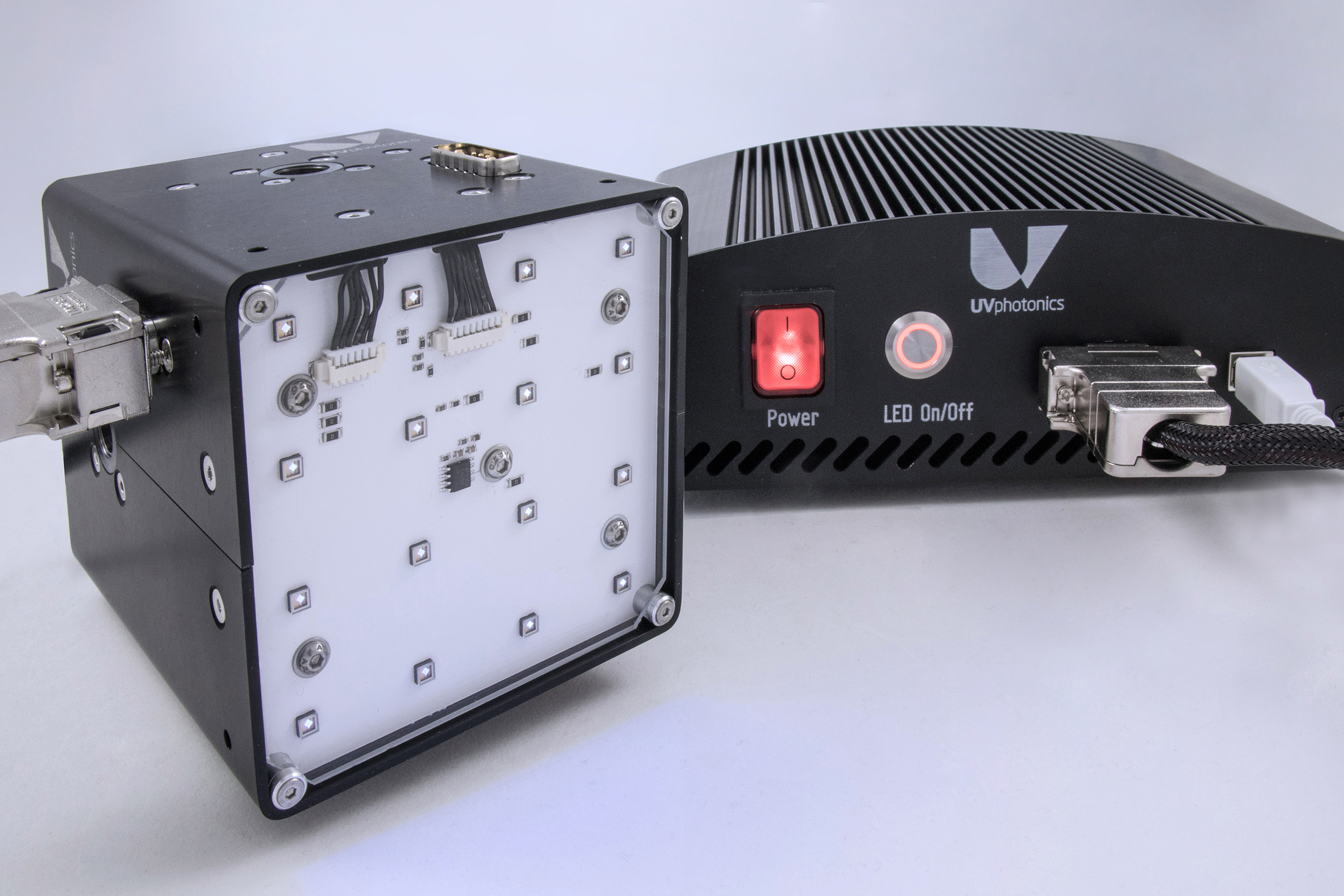Berlin-based Ferdinand-Braun-Institut (FBH) and its spin-off UVphotonics have designed and developed a versatile irradiation system for surface treatment. The modular system can be flexibly equipped with its in-house developed UV LEDs and commercially available UV, visible and infrared LEDs, meeting the demands for different targeted emission spectrum.

(Image: FBH)
For disinfection purposes it can be equipped with LEDs emitting at 265 nm to eliminate germs on surfaces of daily objects such as mobile phones and reusable masks as well as menu cards in restaurants. The system can also be used in the professional sector, for example in healthcare clinics and laboratories. It is equipped with an illumination module comprising 16 UV LEDs distributed over an area of 80 mm x 80 mm. The LEDs provide an intensity >5 mW/cm2. Therefore, the irradiation system achieves the minimum UV dose of 500 mJ/cm2 recommended by the Centers for Disease Control and Prevention (US Department of Health) in less than two minutes. An integrated timer ensures the correct dosage.
The module can control up to four different wavelengths separately, which can be an enormous advantage in applications such as medical treatments and curing. To cover larger areas, the modular segments can be mechanically interconnected wire-free and therefore the system is flexibly expandable into 1-dimensional as well as 2-dimensional arrays. Also, individually shaped arrays are possible, which can be integrated into a large number of disinfection systems. The overall system is a plug and play solution. It can be computer-controlled or operated as a stand-alone solution with constant power. Even programming a timing pattern is possible.












